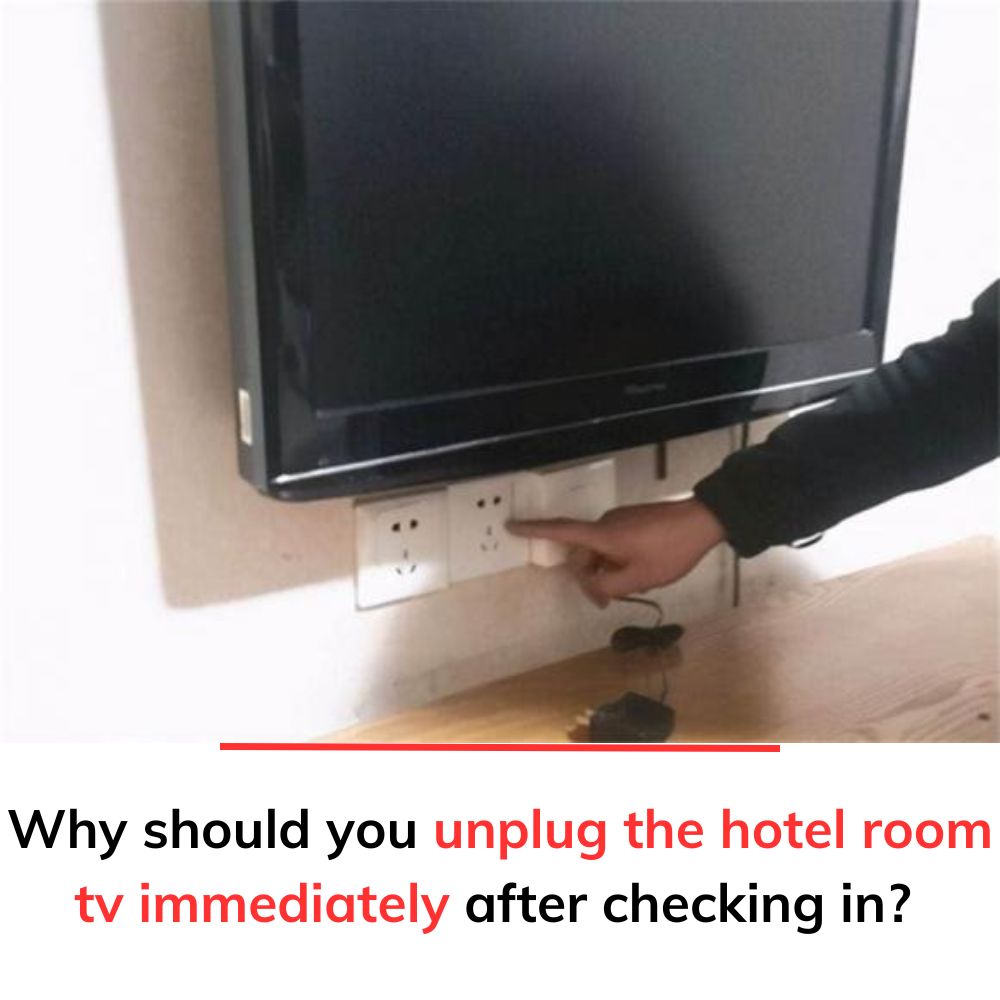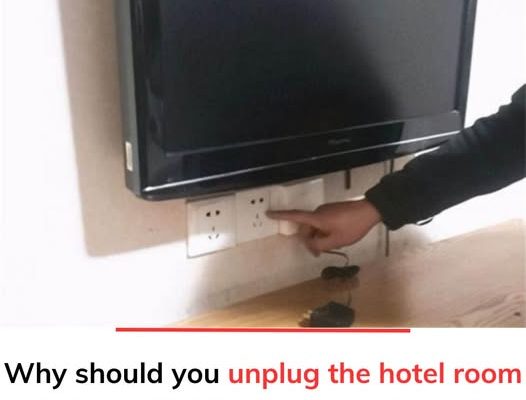When traveling or on business trips, staying at motels or hotels is often necessary. These temporary accommodations offer convenience and comfort, but they can also pose unexpected risks. Reports of hidden cameras in hotel rooms have raised serious concerns among travelers. These covert devices are installed by malicious individuals to record guests’ private moments, often with the intent of selling the footage or using it for blackmail. While this does not occur in every hotel, it is crucial to remain vigilant and take precautions. One simple yet effective measure recommended by experienced hotel staff is to unplug the TV and thoroughly inspect the room upon checking in.
The Hidden Threat: Why TVs Are a Target for Hidden Cameras
At first glance, the hotel TV may seem like just another appliance—a source of entertainment or a decorative feature that some guests might barely notice. However, this seemingly harmless device can become a prime location for hidden recording equipment. Understanding why TVs are a preferred spot for perpetrators is key to protecting your privacy.

The TV’s location in a hotel room is often strategic, typically placed directly opposite the bed. This positioning offers an ideal angle to capture clear footage of activities on or around the bed. This makes the TV an attractive choice for anyone looking to install a hidden camera. Furthermore, both the TV and its accompanying set-top box emit infrared signals. These signals can obscure the infrared signals used by recording devices, making it harder for unsuspecting guests to detect any hidden equipment. This creates an environment where cameras can operate undetected, posing a serious invasion of privacy.
For these reasons, the edges of the TV or the set-top box are commonly selected by wrongdoers as hiding spots for cameras. The design of these devices often includes vents, ports, and other crevices that provide convenient spaces for covert installation.
Immediate Action: Unplugging the TV and Inspecting the Room
To protect your privacy, one of the first steps you should take upon entering a hotel room is to unplug the TV. Disconnecting the power source ensures that any devices relying on the TV for operation, including potential hidden cameras, are rendered inoperative. This simple act can eliminate a significant risk while giving you peace of mind.
After unplugging the TV, a thorough inspection of the room is equally important. Take the time to check all corners of the space, including areas that might seem unlikely for camera placement. Be particularly vigilant around common hiding spots such as air vents, smoke detectors, alarm clocks, and decorative items like picture frames or flower pots. Using a flashlight to examine these areas can help you spot any reflective surfaces or tiny lenses that may indicate the presence of a camera.
Tools to Enhance Your Search
While a manual inspection is effective, using technology can further improve your ability to detect hidden devices. For instance, smartphone apps designed to detect infrared signals can help you identify cameras that may not be visible to the naked eye. Simply point your phone’s camera around the room, focusing on the TV, set-top box, and other suspicious areas. If you notice a bright, pulsating light in the camera viewfinder, it could be a sign of a hidden recording device.
Additionally, RF (radio frequency) detectors are handy tools for identifying wireless signals emitted by hidden cameras. These devices are small, portable, and widely available, making them a worthwhile investment for frequent travelers.
The Broader Context: Privacy Concerns in the Hospitality Industry
The rise in hidden camera incidents reflects broader concerns about privacy in the hospitality industry. Advances in technology have made recording equipment smaller, cheaper, and easier to conceal, increasing the risk for unsuspecting hotel guests. This issue has prompted some hotel chains to implement stricter security measures, such as regular room inspections and employee training to identify suspicious activity. However, it’s important to note that not all establishments have the resources or policies in place to guarantee guest privacy.
As a traveler, taking proactive steps to safeguard your personal space is essential. Unplugging the TV and inspecting the room are simple measures that can significantly reduce the risk of being secretly recorded. Awareness and vigilance are your best defenses against potential violations of privacy.
What to Do If You Find a Hidden Camera
If you suspect or discover a hidden camera in your hotel room, it’s important to act calmly and decisively. Here are the steps you should take:
- Document the Evidence: Take photographs or videos of the device and its location. This documentation can serve as proof if legal action becomes necessary.
- Do Not Touch the Device: Avoid tampering with or removing the camera, as doing so could compromise evidence.
- Notify Hotel Management: Immediately report your findings to the hotel’s management. Request to be moved to another room or, if you feel unsafe, consider checking out and finding alternative accommodations.
- Contact Authorities: Depending on the severity of the situation, you may need to involve local law enforcement. Hidden cameras installed without consent are illegal in most jurisdictions, and authorities can investigate the matter further.
Building a Culture of Awareness
While not every hotel poses a risk, staying informed and prepared can help you avoid becoming a victim of privacy violations. Sharing your experiences and knowledge with friends and family can also contribute to a broader culture of awareness. The more people are informed about the potential risks and precautions, the less likely perpetrators will succeed in their efforts.
In conclusion, unplugging the TV and inspecting your hotel room upon checking in are small actions that can have a big impact on your safety and peace of mind. By taking these steps, you can focus on enjoying your trip without worrying about hidden threats. Stay vigilant, and remember that protecting your privacy is always worth the effort.



